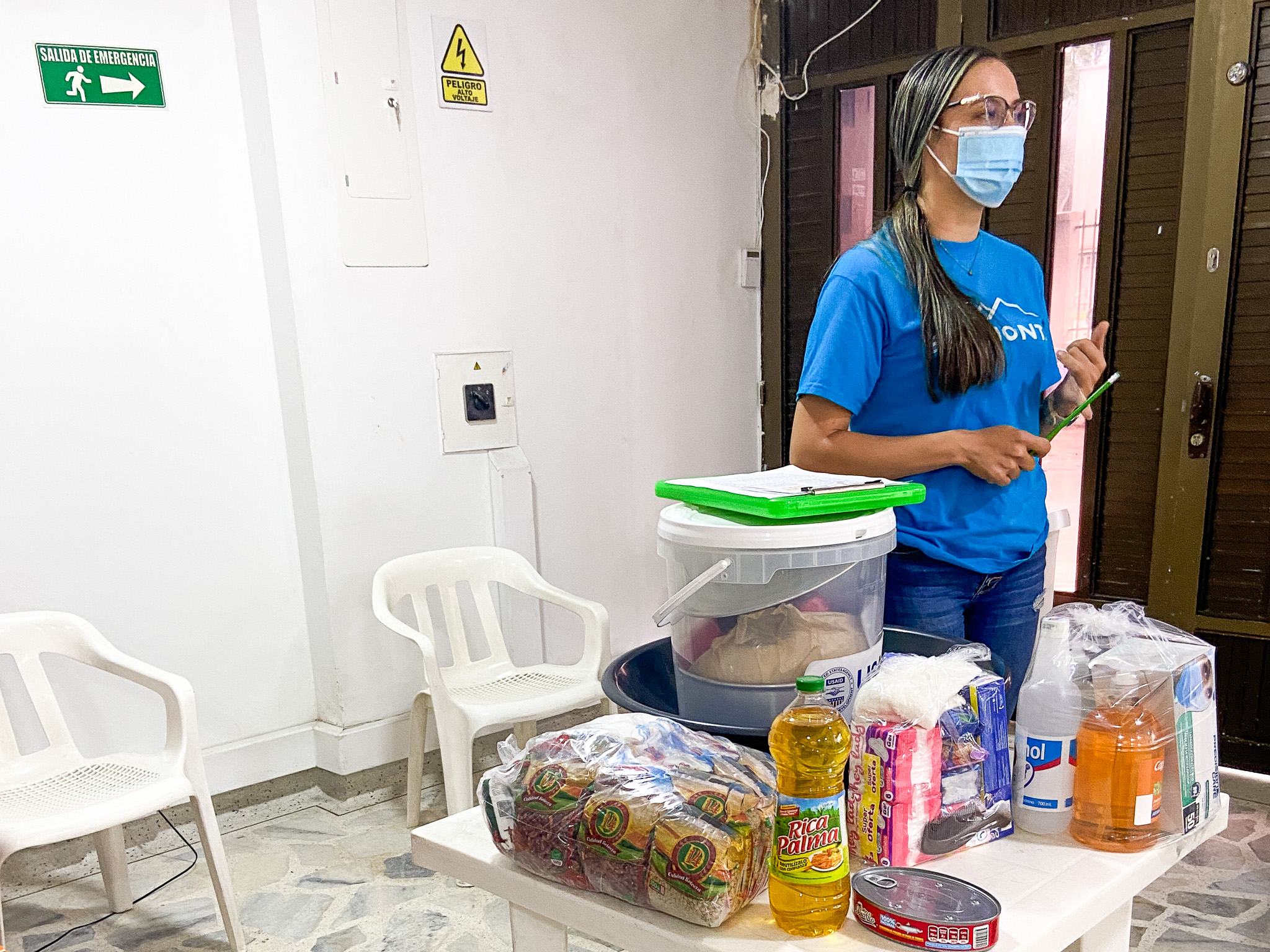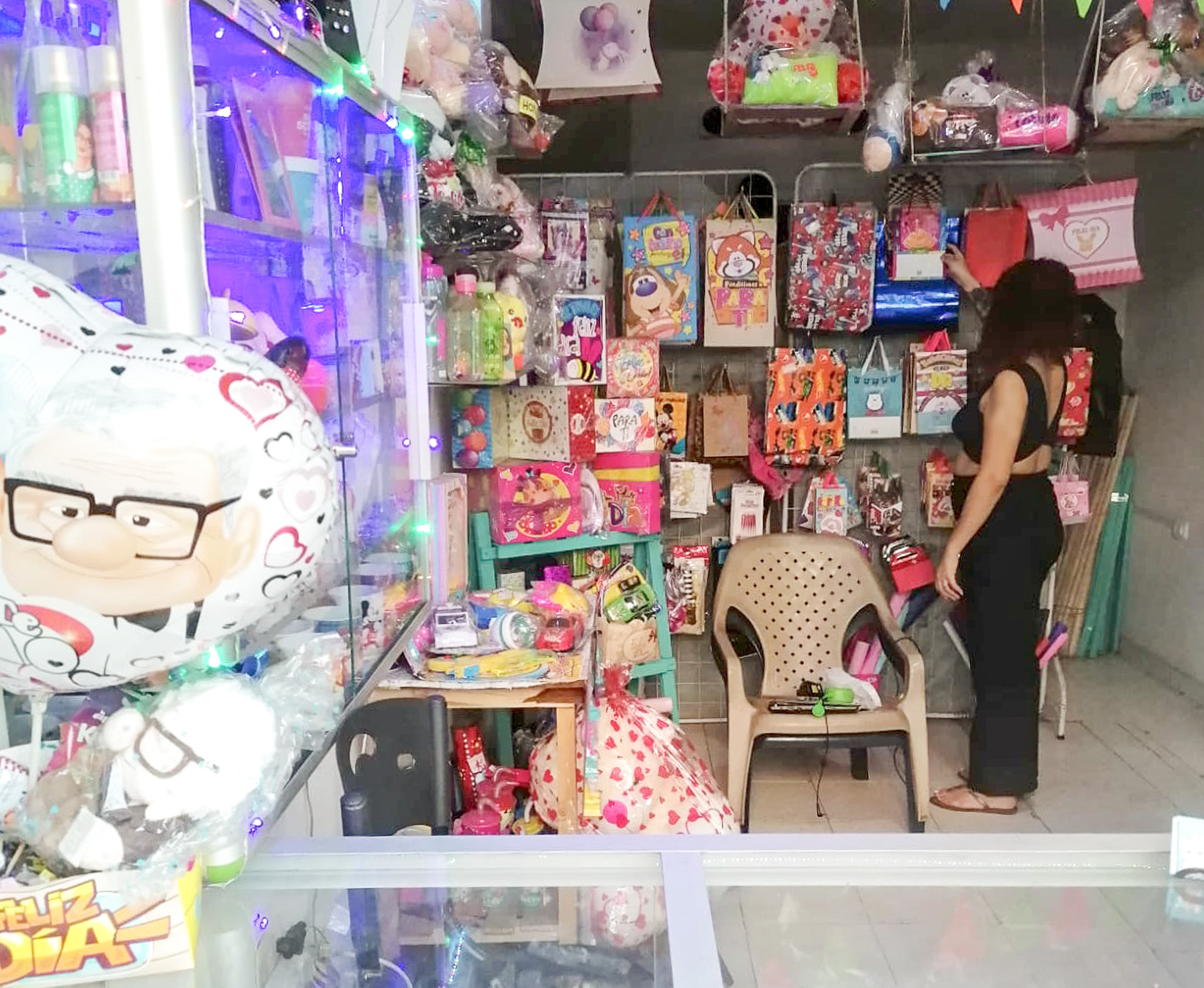In Colombia, communities continue to be torn apart by violence, conflict, and displacement. For Maria and her adult daughter Lorena*, leaving their home in southwestern Colombia was only the beginning of their difficult journey as internally displaced persons. On their way to seek refuge in the city of Florencia in August 2022, both survived gender-based violence.
Maria and Lorena wanted to put their traumatic past behind them. But for the first few months in Florencia, they struggled to find work and lived in a neighborhood that felt unsafe.
The Closing Gaps program, funded by USAID’s Bureau for Humanitarian Assistance and implemented by Blumont, supports internally displaced people like Maria and Lorena with a range of food, WASH, shelter, and protection services. The Closing Gaps team guides people through the complexities of accessing immediate care and building longer-term stability.

A Blumont psychologist shared the contents of a biweekly assistance package with people who were recently displaced to Florencia (not pictured).
Once connected with Closing Gaps, Maria and Lorena received humanitarian assistance that included food packages and a variety of essential items to start a new home. The Closing Gaps team provided both women with group-based emergency psychosocial assistance, individual psychological first aid, and referrals for specialized mental health services for further care.
The women also applied for rental support, which Closing Gaps makes available for people who receive humanitarian assistance. They received six months of rent payments that allowed them to move into a safer apartment. Without having to spend her income on rent, Lorena was able to invest in opening her own business that she runs from the apartment, which is on a busy commercial street. As people walk by, they can browse the beautiful stationery, cards, and gifts Lorena curates for each season and holiday. Skilled in crafts and business, she is thriving with this new opportunity.
As their livelihood was pieced back together, Maria and Lorena were encouraged to continue focusing on healing and taking steps to move forward. Maria joined the program’s mutual support group for women, which invited her to recognize, process, and share her emotions with a group of women who had also been displaced. After nine group sessions with a Blumont psychologist, Maria said, “I feel happy and calm to see changes for the better in myself.”

Lorena at her gift shop in Florencia, which she opened after receiving rental support from the Closing Gaps program.
When the six months of rental support ended, the women were in a position to continue paying rent on their own. Maria now works at a nearby hotel while her daughter runs the stationery business. The Closing Gaps programs, Lorena said, “helped us access mental health services and the possibility of saving to be able to establish my own business and to be independent.”
Looking towards the future, Lorena is determined to grow her business. Recognizing her potential, Blumont connected her to other international organizations’ development initiatives. Since then, Lorena has received training and seed capital for the business.
Maria, working hard on herself and at her job, is proud of her mental health progress. Now, she says she hopes to support her daughter emotionally.
Amidst displacement and violence, Maria and Lorena have retaken control of their lives. Once recipients of humanitarian aid, the two women are now self-sufficient and pursuing new opportunities. They will undoubtedly inspire others who are seeking support. “I’d like to be a role model for other families. I would like to testify to the change that my life has had,” Lorena said.



